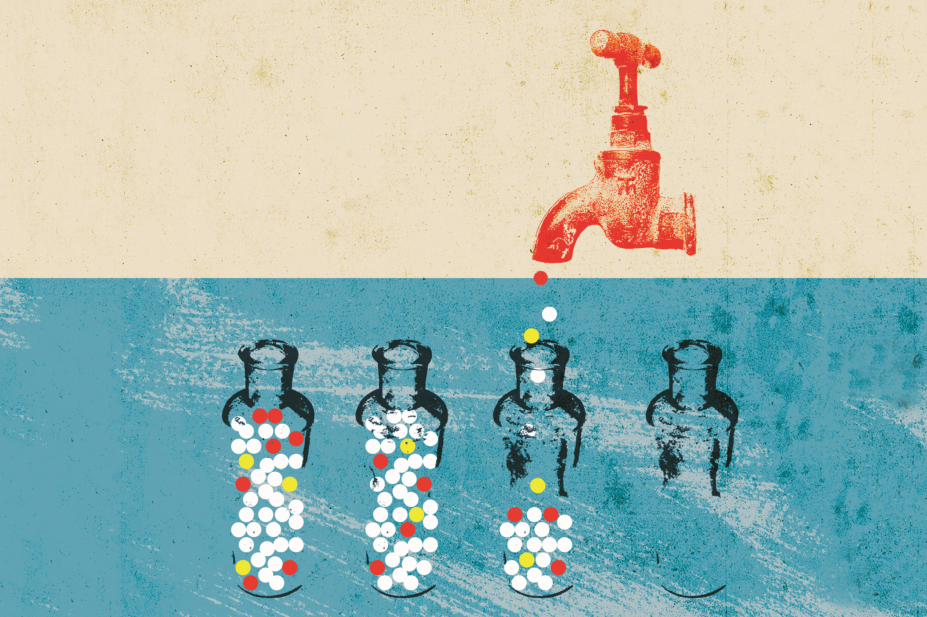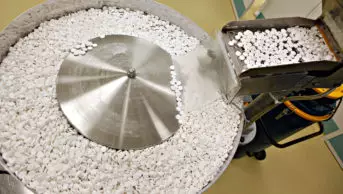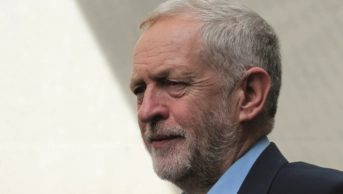
Lee Woodgate / Ikon Images
Way back in 2012, before funding cuts and Brexit and countless other of today’s challenges were on the horizon, one problem was already coming to light. In fact, the voices of community pharmacy had grown so loud warning about the problem that the All-Party Pharmacy Group (APPG) — a group of MPs across all parties, with an interest in pharmacy — decided to hold an inquiry into it. Their verdict? Medicines stock shortages are a problem; sort them out.
But fast-forward half a decade and if you’re working in a community pharmacy it won’t feel like much has changed. We are still spending hours every week trying to get hold of the medicines our patients need; and things seem to be getting worse, rather than better.
Medicines sources limited
There are many factors currently affecting the supply of medicines to pharmacies and causing these problems. The restricted distribution models implemented by many manufacturers — whereby they only allow a few selected pharmacy wholesalers to stock their medicines — certainly had an impact. They have limited the places from which we can source medicines and diluted competition in the market. This makes the market less resilient, so when things go wrong — a power outage at a major wholesaler, for instance — it can be chaos for pharmacies who have to borrow medicines from one another to meet patient needs.
For many years the UK could import drugs cheaply, but exchange rates mean importing is often no longer a good way to source reasonably priced medicines
A second factor is the global nature of the market for medicines. For many years this benefited the UK as we could import drugs cheaply, but exchange rates mean importing is often no longer a good way to source reasonably priced medicines. In fact, generics prices in the UK are now so low that it is not difficult to imagine why the UK market might not appeal to generics manufacturers at all — why would any business want to sell at lower prices when they could fetch higher ones elsewhere?
Manufacturing plant closures
Another recent and unprecedented problem has been the inspections by regulatory authorities which led to the closures of manufacturing plants owned by two major generics companies. Inevitably, a plant closure means fewer medicines can be produced, prompting potential worldwide shortages of some medicines.
But alongside issues like these which can create real physical shortages of some medicines, a whole host of other market factors come into play and can affect our ability to source medicines. Pricing is a major worry; when medicines are in short supply they tend to become more expensive, and sometimes we simply cannot obtain medicines for anywhere near the Drug Tariff (which sets out how much we will be reimbursed for medicines) prices.
Manipulation of the market can make it very difficult for pharmacy contractors to purchase medicines and can lead to price distortions
Generics pricing is complicated at the best of times, because prices are adjusted regularly to try to set the amount of margin that pharmacy contractors can make on the medicines (this margin forms part of our core funding). But when shortages come into play the market can be even more volatile. There can also be manipulation of the market, which can make it very difficult for pharmacy contractors to purchase medicines as they usually would.
Branded generics distort prices
One example of this is when local NHS commissioners ask GPs to prescribe medicines called ‘branded generics’. Branded generics are produced by manufacturers and priced at levels below the Drug Tariff levels, making them attractive locally because they bring down local drugs bills. But nationally, because generic medicines are priced at a level designed to assure delivery of our core funding, this does not lead to savings. And in fact the local distortions of pricing can mean that pharmacies are not able to earn core parts of their funding, which is a problem.
So what can we do about all of this? Well some things we are already doing. Every month a huge amount of work goes into assessing market prices for any medicines known to be in short supply, to ensure that ‘concessions’ are granted. These mean pharmacies can purchase and be reimbursed for the medicines at the higher market prices. But this system takes a lot of work, and pharmacies often have to go for long periods without knowing whether they will be granted a concession price.
The PSNC is seeking urgent intervention from the Department of Health to ensure the resilience of the medicines supply chain
The Pharmaceutical Services Negotiating Committee (PSNC) would like to see a simpler process, with the Department of Health making speedy adjustments to address the impact of high price rises like the ones we are now seeing. With so many medicines lines currently affected we are also seeking urgent intervention from the Department of Health to ensure the resilience of the medicines supply chain. Unfortunately, there is no simple answer in such a complex market — if there were, they would have done it.
So in the meantime, for community pharmacies the job remains pretty much the same as back when the MPs investigated in 2012. Keep pushing your wholesalers for the best possible deal; keep telling us about the problems; and keep explaining to patients that you are doing all you can, but that sometimes the supply problems are national, and simply out of your control.
Mark Burdon is an independent community pharmacy contractor and PSNC regional representative.


